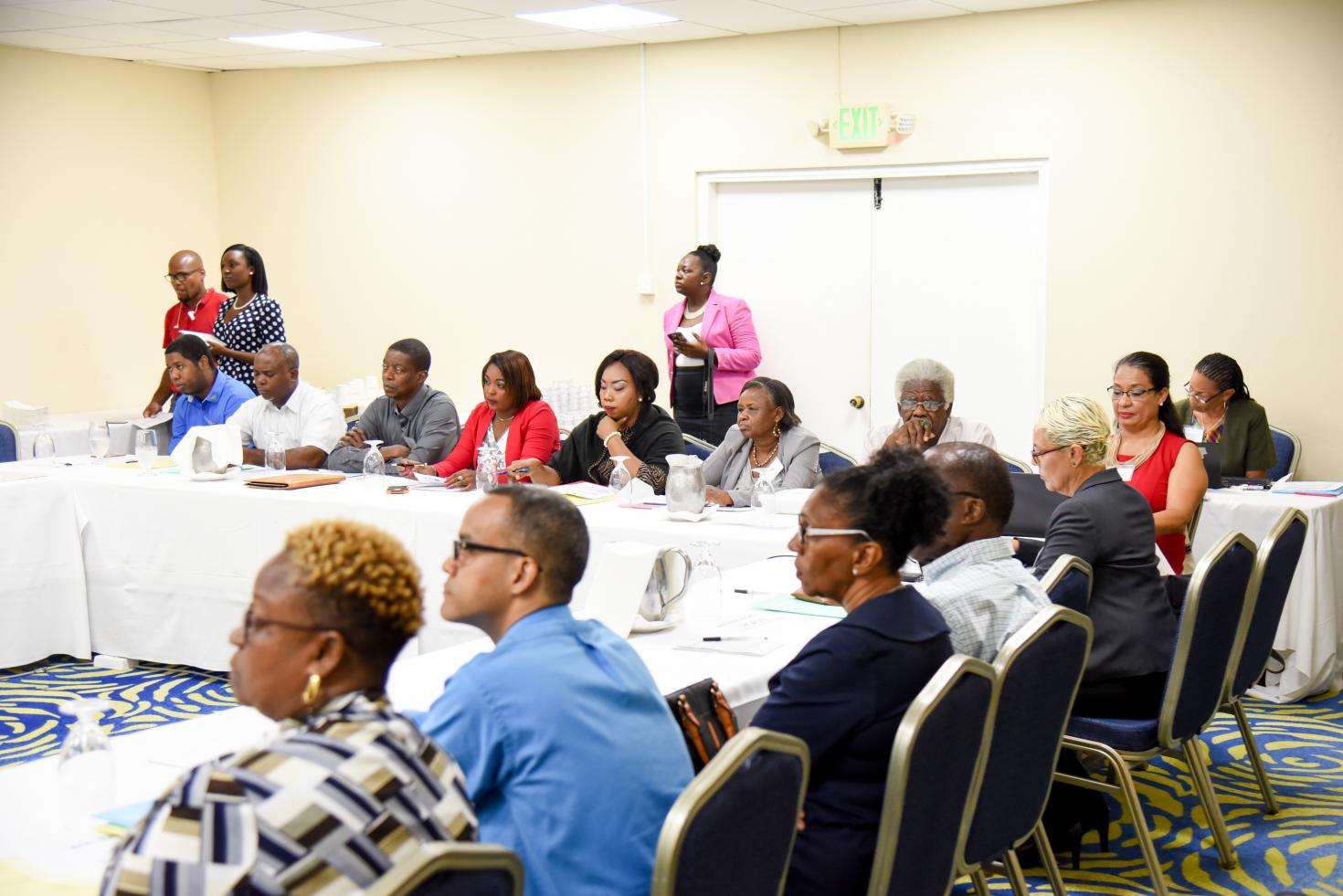The meeting provides a forum for stakeholders to identify the most critical policy gaps that need to be filled to create an environment conducive to strengthen linkages between the agricultural and tourism sectors

Saint George, September 26, 2019 (IICA). A two-day Agro-Tourism Policy Setting Workshop was held in Grenada to promote sustainable use of local food by the tourism industry through strengthened intersectorial policies.
The workshop, entitled ‘Policy Setting for improved linkages between agriculture, trade and tourism: Strengthening the local agri-food sector and promoting healthy food in agri-tourism”, was held on September 17 – 18.
It was organized by the IICA Grenada Delegation on behalf of the Government of Grenada, in collaboration with the Technical Centre for Agricultural and Rural Cooperation (CTA) and the Organization of Eastern Caribbean States (OECS).
Amongst the 45 participants were government officials from agriculture, trade and tourism ministries, private sector, farmers, agro producers, chefs and employees from the hospitality sector, civil society and academia.
“The meeting provides a forum for stakeholders to identify the most critical policy gaps that need to be filled to create an environment conducive to strengthen linkages between the agricultural and tourism sectors in Grenada”, said IICA Representative in Grenada and ECS, Gregg Rawlins.
He warned that more needs to be done in both sectors. “You need to adopt appropriate technologies and sound agri-business management strategies that stimulate increases in productivity, production and competitiveness to ensure a consistent and reliable supply of competitively priced, primary and value-added products and services to the sector. You need to be able to adhere to stringent food safety, quality, labour and environmental standards.”
Minister for Agriculture and Lands, Yolande Bain-Horsford, praised CTA’s vision for the two sectors.
“The continuous demand for the tourism sectors for meals and beverages, accommodation and cultural experiences, are services which can, in part, be provided by local farmers. It is important to note that food represents roughly 30 % of the total tourist expenditure, which implies that there is vast potential for local producers. I am confident that our producers of food have the capacity to supply on a consistent manner a major part of the culinary needs to the tourism sector,” she said.
The Minister of Tourism and Civil Aviation, Clarice Modeste-Curwen, highlighted the importance of the synergy between both sectors. “It brings to light an aspect of community tourism, farm-based tourism, culinary tourism, agroheritage tourism, agro-eco-tourism and agro trade. Therefore, it is important for the Ministry of Tourism, as we make a consorted effort to assist in enhancing livelihoods; a major aspect of our community-based tourism development program for the coming years”.
The workshop has already rolled out in some other countries within the Eastern Caribbean States (ECS).
More information:
Gregg Rawlins, IICA representative in the Eastern Caribbean States.
gregg.rawlins@iica.int











